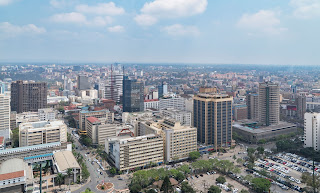When building a portfolio, many people don’t think about investment opportunities in Africa, but with more than 50 diverse nations and largely untapped economies, investing in Africa can be an excellent way to expand your portfolio. Let’s take a look at these emerging and frontier markets and what they have to offer investors.
Emerging Markets & Frontier Markets In Africa
While many nations in Africa are experiencing solid economic growth, these nations are still classified as emerging markets or frontier markets. Established or developed markets, include nations such as the United States, Japan, Singapore, Canada, Australia, the United Kingdom and others.
These developed markets nations or city-states with established stock markets and strong currencies, and while they might seem like the safest bet investment-wise, there are many opportunities for investors in emerging and frontier markets, such as South Africa, Nigeria, Kenya, Tunisia, Egypt and Morocco. The West African Economic and Monetary Union (WAEMU) also is considered a frontier market and includes the countries of Benin, Burkina Faso, Cote D’Ivoire, Guinea-Bissau, Mali, Niger, Senegal and Togo.
But there are also many countries with growth potential that haven’t quite reached a frontier market status, as measured by indices such as MSCI. For instance, Tanzania is listed as unclassified by MSCI and S&P, although FTSE lists it as a frontier market. Zimbabwe is listed as a frontier market by MSCI, but unclassified by S&P and FTSE, so you see that even the powers that be at these index providers don’t always agree on the status of each country.
Africa is a unique continent and attractive to investors for several reasons. Africa, in general, has a very young population. The average age throughout all African countries is about 20 years old. Compare that with Europe, where the average age is about 43. With an older population, the economy becomes more focused on health care and entitlements, while a younger economy tends to be more consumer-driven, seeking a wide variety of goods and services.
The population growth rates in Africa also are increasing at a faster rate than in developed countries, which means there’s going to continue to be greater demand for goods and services in general as compared to countries with lower population growth rates.
Investment Sectors To Consider
As an investor, you always have the option of investing in specific industries, and when it comes to investment opportunities in Africa, you have many choices, including:
Agribusiness
Agribusiness in Africa is one possible investment option. Our blog founder, Larry Seruma, serves as the executive chairman of Feronia, Inc. This agribusiness includes three palm oil plantations in the Democratic Republic of the Congo (DRC) managed by Plantations et Huileries du Congo (PHC).
These PHC plantations not only supply people of the DRC with palm oil, but they also support the economies around these plantations, employing nearly 4,000 permanent staff and about 4,000 seasonal workers. An investment in Feronia can help strengthen the economy of the DRC as well as expanding your portfolio. While we aren’t recommending Feronia over other agribusiness investment opportunities in Africa, this is simply an example of one type of individual investment that you might consider.
Mining
Africa is a continent rich in natural resources, and there are many investment opportunities in mining. You could invest in a specific mining operation, and there are many options including gold mines, cobalt, iron, etc. There are also a few ETFs out there that include African mining operations as part of their holdings.
Waste Management
Waste is an issue for every country in the world, and this is certainly true among the nations of Africa. Typically, most waste in Africa is burned or ends up in landfills and sometimes, unfortunately, in water sources. However, there are many companies in Africa that are trying to better manage waste. In some cases, waste is transformed into animal feed or fertilizer and in some countries, such as Ethiopia, waste is being recycled and used to provide electricity for its citizens. Investing in waste management can help improve the quality of life for many people in Africa, as well as potentially helping your portfolio.
Energy
With a fast-growing population of more than one billion people, the continent of Africa has huge energy needs. You can invest in traditional forms of energy or consider investments in green energy or clean energy, such as wind energy and solar farms.
Infrastructure
In addition to improving energy access throughout Africa, many other infrastructure improvements are starting to be made. These include building or improving roads, establishing communication networks, improving water quality and accessibility, creating mass transit systems and much more. This is yet another investment opportunity that not only might yield solid returns but helps improve the quality of life for people throughout Africa.
Investment Options
When investing in Africa, either in emerging or frontier markets, the best way to minimize risk to study each investment carefully and diversify your Africa investing portfolio to include a variety of industries, companies and countries. An Africa ETF or Africa mutual fund can be one option consider, and these types of investments include multiple holdings which can reduce risk.
You could invest in an Africa ETF or Africa mutual fund that focuses on a specific country or a specific industry. You also could purchase shares of individual countries in different industries. This can be an excellent option for anyone interested in socially responsible investing as you can choose companies or projects that provide goods or services that are meaningful to you.
Whether you
decide to invest in farming, energy or some other sector, investment
opportunities in Africa are bountiful. To minimize risk, we again recommend
researching each investment carefully and diversifying your risk with a variety
of investments. If you are interested in learning more about becoming an Africa
investor, be sure to sign up for our newsletter.


No comments:
Post a Comment